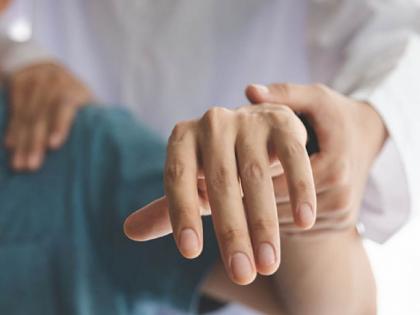Maharashtra Confirms First Guillain-Barré Syndrome Death, Pune Total Reaches 101
By Lokmat English Desk | Updated: January 27, 2025 10:39 IST2025-01-27T10:37:37+5:302025-01-27T10:39:58+5:30
The number of Guillain-Barré Syndrome (GBS) cases, a rare neurological disorder, has surpassed 100 in Pune, reaching a total ...

Maharashtra Confirms First Guillain-Barré Syndrome Death, Pune Total Reaches 101
The number of Guillain-Barré Syndrome (GBS) cases, a rare neurological disorder, has surpassed 100 in Pune, reaching a total of 101 on Sunday with the addition of 28 new confirmed cases, according to updated surveillance data from Steffy Thevar. Maharashtra has reported its first death due to Guillain-Barre Syndrome (GBS) after a patient in Pune died from the rare neurolgoical disorder. There has been a suspected GBS-related death in Solapur, although details remain scarce. Currently, 16 patients diagnosed with this rare but treatable condition are on ventilator support. Among those exhibiting symptoms, 19 are under nine years old, while 23 cases fall within the 50-80 age group.
The first identified case in a cluster of GBS patients in Pune was hospitalized on January 9. Tests have detected Campylobacter jejuni bacteria in samples from several hospitalized patients. This bacterium is responsible for about one-third of global GBS cases and is associated with severe infections.
In response to the surge in cases, authorities are testing Pune's water supply, particularly in areas where GBS cases have been reported. Recent test results released on Saturday indicated high levels of E. coli in a well near Khadakwasla Dam, Pune's main water reservoir. However, officials remain uncertain whether the well is currently in use. Residents have been advised to boil water and heat food before consumption.
Health officials have surveyed 25,578 homes to identify additional patients and investigate the cause of the recent increase in GBS cases, which typically sees no more than two cases per month.
How does GBS Attacks our Nervous System.
GBS occurs when the immune system mistakenly attacks the nerves following a bacterial or viral infection, leading to weakness and paralysis. Doctors report that approximately 80% of affected patients regain the ability to walk unaided within six months of discharge, although some may take a year or longer to fully recover. Treatment can be costly, with each immunoglobulin (IVIG) injection priced at Rs 20,000. One family shared that their 68-year-old relative, admitted on January 16, required 13 IVIG injections. Three major hospitals in the city alerted local health authorities earlier this week after noticing an unusual spike in GBS cases, with 26 reported on January 10, which rose to 73 by Friday.
Open in app